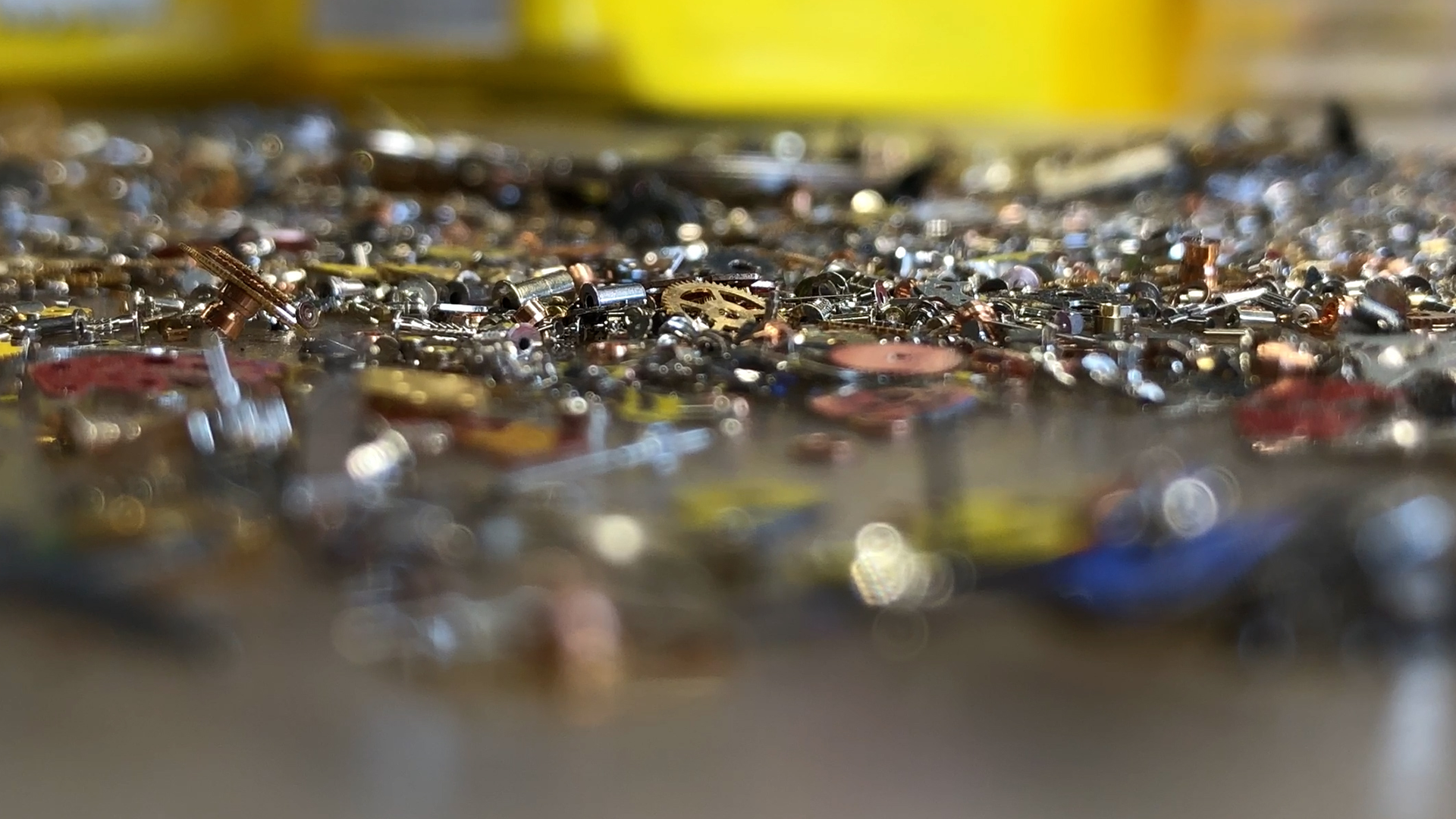
Why Swiss watches must become ‘greener’

Even if it claims to sell watches designed for “eternity”, the Swiss watch industry still has a lot to do to improve the transparency and traceability of its products. SWI swissinfo.ch spoke with Robert Schacherbauer, an economics graduate, who argues sustainability should become a key element of the Swiss Made label.
Robert Schacherbauer, a twenty-two year old economics BA student at the Zeppelin University Germany, devoted his bachelor’s thesis on sustainability in the Swiss watch industry. His research spanned over 8 months during which he met with numerous experts and insiders of the industry, including during several trips to Switzerland.
One of his key findings included the lack of reflection by Swiss watchmakers on sustainability. He argues the industry is only at the beginning of a great makeover that will redefine its value proposition and what quality actually means.

SWI swissinfo.ch: Luxury watches are made to last. Why should Swiss watchmakers care about sustainability?
Robert Schacherbauer: Indeed, there are factors that make a luxury wristwatch inherently sustainable: it is not powered by fossil fuels, built to outlive generations, and gets its energy from a turn of the watch’s crown or a move from the wrist. Still, we have to raise the question whether it is doing enough. The industry embraces avant-garde aesthetics by merging precious metals and gemstones with time-honored techniques to create luxury timepieces connected to centuries-old horological history.
The concrete environmental footprint of their production is still unknown and the industry lacks transparency and traceability of its raw materials. Consumer demands and pressure from climate change are an opportunity to rethink the status quo of the industry.
SWI: Why don’t the big brands put more emphasis on the theme of climate change and environmental protection in their marketing?
R.S: The luxury watch industry is built around the promise of international travel, exclusive sports, and hedonistic values. Protecting the environment and sourcing from recycled products is – to put it on a simply – not in vogue.
Beyond that, the industry is slowly reorientating its corporate strategy towards being more sustainable. The same applies to how they are communicating on the topic. Their communication strategy is still in its infancy. This is also one of the downsides of the luxury industry: it can be considered slow to adapt to trends while relying on former success factors. I personally see the future of luxury in the reconciliation of luxury and sustainability; a redefinition of luxury and of heritage.
Forecasts state that by 2025, Millennials and Generation Z will account for 70% of the global personal luxury goods market. With them appearing on the agenda, the industry has to rethink its value proposition and how sustainable their products are.
SWI: At the end of 2018, the World Wide Fund for Nature (WWF) published a devastating report for the industry stating that “most companies do not seem to care about the environment and are not transparent.” Have things changed since then?
R.S: Things have definitely changed over the last four years, but I cannot say whether this is a consequence of the devastating report. The circumstances and especially the awareness among watch executives and consumers has changed significantly. Recently, some brands have made greater efforts in embracing environmental sustainability into their products, but it remains difficult to modify well-oiled industrial circuits.
SWI: In which areas does the Swiss watch industry need to make the most efforts in this regard?
R.S: The issues that are most critical are responsible raw-material sourcing – precious metals in particular – and supply chain transparency. Efforts in this field are crucial since many manufactures are still not able – or not willing – to communicate on this. Many don’t trace the origins of their raw-materials and blindly trust their suppliers to operate according to the brand’s sustainability principles.
On a general level the industry lacks transparency. It often operates in a climate of secrecy and seeks to preserve its competitive advantage by not revealing its suppliers and partnerships.
SWI: According to a Deloitte Swiss Watch Industry Study published in 2021, 72% of brands are investing in sustainable solutions to reduce their carbon footprint and address consumer demands. Is there also a significant part of greenwashing in these different initiatives?
R.S: Greenwashing is definitively an issue – as it is in many industries right now. In the watch industry, it often appears unconsciously. Brands lack the relevant awareness on the impact of their initiatives. This is also visible in the impossible assessment of the environmental impact of a mechanical wristwatch.
Right now, most initiatives refer to manufacturing wristbands made of recycled materials. The idea of recycling waste is good in principle but if the environmental cost of recycling is higher than producing a canvas wristband, the brand should raise the question if this benefits the intention.
SWI: Many start-ups offer innovative products and processes to reduce the environmental impact of their products. Can they serve as catalysts for the rest of the industry?
R.S: The start-up ecosystem in Switzerland’s watch industry is thriving. New watchmakers are explicitly embracing the circular economy and consciously developing their value proposition around sustainability. But they still have to demonstrate that consciously building that value proposition pays-off in the long run both in terms of competitive advantage and commercial scaling. Their first products show that sustainable production orientation has positive effects on decreasing costs and increasing efficiency. This fosters future viability for the brands.
SWI: In conclusion of your research, you suggest an adaptation of the Swiss Made label, which would include the notion of sustainability. Why?
R.S: About 95% of all luxury watches are stamped Swiss Made.
Today, the time display function has been replaced by the smartphone, which means the technical quality convention is not essential anymore. Today, the Swiss Made label is mostly for consumer perception. There is an opportunity for the industry to redefine the notion of the label and enrich it with sustainability criteria. Integrating sustainability requirements from a governmental perspective solves the current lack of policies concerning value creation and origin of material.
SWI: What could this mean in concrete terms?
These are already some proposals how sustainability could be integrated into the Swiss Made label: Instead of requiring that 60% of the added value must be realized in Switzerland, the production should be constrained to central Europe for example to support relocation and limit the consumption and waste of resources.
The origin and mining process of raw materials should be traceable, and transparency should be a requirement along the entire value chain. Other options include regulatory requirements for zero-carbon production like using energy from solar panels and recycling heat, a by-product of manufacturing.

In compliance with the JTI standards
More: SWI swissinfo.ch certified by the Journalism Trust Initiative































You can find an overview of ongoing debates with our journalists here . Please join us!
If you want to start a conversation about a topic raised in this article or want to report factual errors, email us at english@swissinfo.ch.